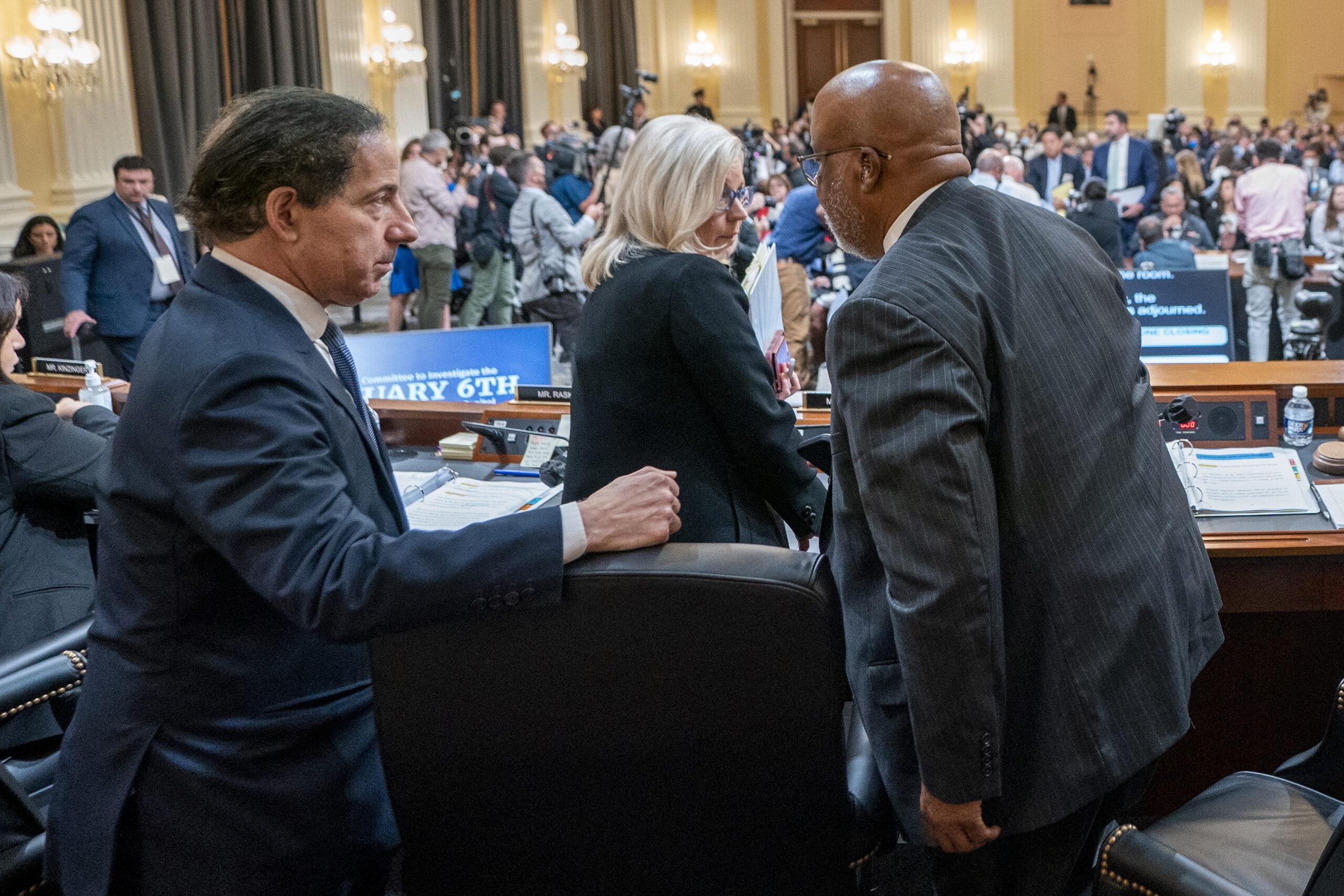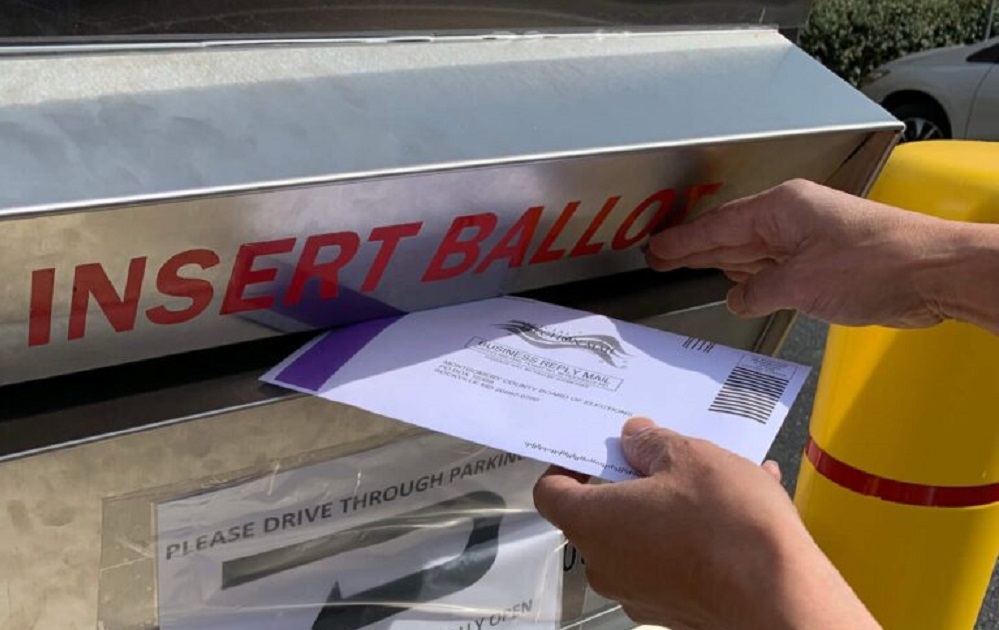Struggle for Control of the U.S. Senate Enters Its Tense Final Hours

Democrats have a shot at winning the White House, capturing the Senate majority and keeping their hold on the House — an election result that could dramatically shift the policy agenda away from the gridlock that’s gripped the nation’s capital for years.
In the Senate, the clearest route to that outcome is through flipping GOP-held seats in Arizona, Colorado, Maine, and either Iowa or North Carolina, according to experts who track Senate races. But even Republican-held seats in ruby-red states like Georgia, South Carolina and Montana have grown surprisingly competitive in the final weeks before the election, and close results could mean a delayed final verdict on the Senate majority.
Polls show Democratic presidential nominee Joe Biden maintaining leads in the national popular vote as well as in battleground states. If Biden wins, the former vice president is all but guaranteed to be working with a Democratic House. And if Democrats flip the Senate as well, they would have the votes in Congress to push through to the Oval Office their most pressing priority — broad economic relief for Americans, businesses and state and local governments struggling amid the pandemic.
The key for the party is the Senate, where Republicans control 53 seats to Democrats’ 45, along with two independents who caucus with them. Democrats need four more seats or just three if Biden claims the White House, since the vice president would break any ties on the Senate floor. A change in the majority now appears possible — though by no means certain — after a year of multiple crises: the coronavirus pandemic, widespread protests over racial injustice and an economic collapse.
“There was a path [for Democrats] at the beginning of the year, but it was a very narrow one,” said Jessica Taylor, who analyzes Senate races for the nonpartisan Cook Political Report. “Democrats were able to expand the map.”
While Democrats are expected to lose a seat in Alabama, the party is defending far fewer competitive seats than the GOP is. And President Trump’s struggles in public polls as he defends his record fighting the virus have not helped down-ballot Republicans.
Democrats also have benefited from a tsunami of campaign cash, outraising Republican incumbents in nearly every competitive race, with outside groups on pace to break election-spending records.
Republicans have used the prospect of a Democratic-controlled Washington to raise money in the party’s final push to hold on to the Senate, warning that Democrats will unleash a flurry of expensive policies embraced by their most progressive members.
Democrats say the most pressing item on their agenda would be to approve a new COVID-19 relief deal after fruitless negotiations that stretched on for months between House Speaker Nancy Pelosi (D-Calif.) and Treasury Secretary Steven Mnuchin. But the party’s moderate and liberal wings also would have to come to agreement on a range of issues, from campaign finance reform to health care to climate change, to produce legislation that is signed into law.
Few states where Dems are on defense
For Democrats, the weakest spot on the Senate map is Alabama, where Sen. Doug Jones is expected to lose to Republican Tommy Tuberville, former head football coach at Auburn University.
Jones won a special election in 2017 in the state where Republicans have dominated statewide elections for years, but he has trailed in the re-election race against Tuberville, who is making his first run for public office.
The only other incumbent Democratic senator facing a serious challenge is Michigan Sen. Gary Peters, who leads Republican challenger John James — a businessman and Iraq War veteran — by an average of nearly 7 percentage points in polls tracked by Real Clear Politics. National projections rate the race as leaning toward Peters, who is in his first Senate term.
In Minnesota, Democratic Sen. Tina Smith’s re-election race against Republican former congressman Jason Lewis has been rated as likely or solidly Democratic by national analysts. Some recent polls have suggested a tighter contest there for Smith, who was appointed to the Senate in 2018 to replace Sen. Al Franken (D), though the race has not attracted the significant outside spending seen elsewhere.
Likely and potential Dem pickups
Analysts say Democrats head into Nov. 3 all but assured of gaining two GOP seats: one in Arizona, held by Sen. Martha McSally, and the Colorado seat represented by Sen. Cory Gardner.
Gardner won his first term narrowly in 2014, and has faced a tough re-election in a state that has trended away from Republicans in recent years. His Democratic challenger is John Hickenlooper, the moderate former governor who also sought the presidential nomination this year, and who has led by high single digits in recent polls.
McSally, a former military pilot, was appointed to fill the open Senate seat after losing a bid for Arizona’s other Senate seat in 2018. She now trails former astronaut Mark Kelly in a historically red state where Biden also leads Trump in many polls. Kelly is married to former Arizona Rep. Gabrielle Giffords (D), who was shot in the head during a constituent town hall outside a Tucson supermarket in 2010.
The next most endangered Republican senator is Susan Collins of Maine, who is the only remaining GOP member of Congress from New England. Collins, a four-term moderate senator, has drawn the ire of Democrats after voting to confirm Supreme Court Justice Brett Kavanaugh two years ago. She’s being challenged by Sara Gideon, the Democratic speaker of the Maine state House.
Wins in those three states and a loss in Alabama would mean Democrats would need to flip at least one more state, and two if the party doesn’t win the White House.
“In all likelihood, Senate control may come down to Iowa and North Carolina,” said Kyle Kondik, an analyst at the University of Virginia Center for Politics.
In North Carolina, the Senate race already has become the most expensive in U.S. history. In the final weeks, the election has been rocked by an infidelity scandal, with Democrat Cal Cunningham admitting he exchanged sexually suggestive texts with a woman who is not his wife. Cunningham, an Army reservist, has kept a low public profile since those text messages and allegations of a second extramarital affair surfaced earlier this month.
Polls have tightened since those revelations, with Cunningham and first-term Sen. Thom Tillis (R) statistically tied in the latest Reuters/Ipsos poll. Tillis has embraced Trump in the race, and voted to confirm Supreme Court Justice Amy Coney Barrett. Tillis was among those who tested positive for COVID-19 after attending Barrett’s announcement ceremony at the White House.
And in Iowa, it’s a close race between Republican incumbent Sen. Joni Ernst and Democrat Theresa Greenfield. It’s also the most expensive race Iowa has ever seen and the second-most expensive Senate race in the country, with more than $200 million spent by the candidates and outside groups, according to Advertising Analytics, which tracks political spending.
Ernst, the first woman to represent Iowa in Congress, has struggled to keep ahead in the polls and outraise her challenger. Greenfield raised more than $47.5 million, nearly double that of Ernst, who raised $24 million.
Even with record campaign spending, neither candidate has a clear lead: Mid-October polls from Emerson College and the New York Times/Siena College found the two candidates separated by 1 point.
On the watch list: GOP strongholds
In an increasingly competitive Georgia, an unusual scenario is playing out, with both Senate seats being filled at the same time — and the outcome of both races is unlikely to be clear for weeks, potentially leaving the Senate majority in limbo.
One of Georgia’s Senate races is a special election among Republican Sen. Kelly Loeffler, who was appointed after Sen. Johnny Isakson stepped down last year; Republican U.S. Rep. Doug Collins; and Democrat Raphael Warnock.
The other is a reelection race for Republican Sen. David Perdue, who is being challenged by Jon Ossoff, a former investigative journalist who ran unsuccessfully for a suburban Atlanta congressional seat in 2017.
In either race, if no candidate wins 50% of the vote, a runoff election will be held on Jan. 5 between the top two candidates. In a Monmouth University poll released this week on Georgia’s special election, Warnock was leading with 41% of registered voters, and the two Republicans were in a close battle for what’s likely to be the second spot in a runoff: Loeffler at 21% and Collins at 18%.
In the Perdue-Ossoff race, that Monmouth poll gave the Democrat a slight edge of between 1 and 3 points, depending on the voter turnout.
A Senate race that Republicans never expected to be a problem is the contest in South Carolina, where Sen. Lindsey Graham is fighting to keep his seat from Democratic candidate Jamie Harrison, who has shattered fundraising records, bringing in $57 million in the final quarter of the race.
Graham’s close relationship with the president and his vocal support to confirm Kavanaugh — he also presided over the Barrett confirmation as Judiciary Committee chairman — have made him a target for Democrats. Harrison has campaigned on ushering a “new South” away from the Jim Crow era.
The latest poll from East Carolina University gave Graham a slim edge over Harrison, 49% to 47%.
If Harrison wins, South Carolina would be the first state with two Black senators — one Democrat and one Republican.
Another surprise has been Montana, a state Trump won by 20 points in 2016 and where incumbent GOP Sen. Steve Daines of Montana is narrowly leading Democratic Gov. Steve Bullock. Recent polls have Daines ahead by an average of 3 points.
In Kansas, where Democrats haven’t won a U.S. Senate seat since 1932, the most expensive Senate race in the state’s history is unfolding over the open seat created by the retirement of Republican Sen. Pat Roberts. Polls have shown GOP U.S. Rep. Roger Marshall either tied with or narrowly leading state Sen. Barbara Bollier, a moderate former Republican who switched parties in 2018.
While Texas is now rated as a tossup state for the presidential election, the Senate race is still a tougher lift for Democrats. Republican incumbent John Cornyn is leading his Democratic challenger, MJ Hegar, by an average of 8 percentage points, according to Real Clear Politics.
However, there are several red states where Republicans expect to keep their Senate seats.
In Louisiana, incumbent Sen. Bill Cassidy is predicted to win more than 50 percent of the vote, which a candidate is required to have to avoid a runoff election, against his Democratic opponents Adrian Perkins and Antoine Pierce. And in Tennessee, Bill Hagerty, a former economic adviser to President George H.W. Bush, is favored to beat Senate Democratic candidate Marquita Bradshaw in the contest for the open seat that has been held by Republican Sen. Lamar Alexander, according to an analysis by FiveThirtyEight.
What’s next if the Senate flips?
If Democrats are successful in picking up the Senate, their first agenda item would be passing a coronavirus relief bill. Attempts to pass another big stimulus package in response to the pandemic have been blocked by the Republican majority, which has sought a much smaller aid bill than what House Democrats have been negotiating with the White House.
Biden also has pointed to pandemic response efforts — such as more money for testing and vaccine distribution — as a top priority.
But other policy issues are sure to follow, said Lisa Gilbert, executive vice president for Public Citizen, a progressive advocacy group and think tank. Those are likely to include tackling climate change and passing sweeping campaign finance reform and anti-corruption legislation, which Democrats have said will be a top legislative package if they control the Senate, House and win the presidency.
“I think across the board, the volume of agenda items is large and I think we’re gonna be hoping that lawmakers are up to the task of taking (legislation) up quickly,” Gilbert said.
During the final presidential debate, Biden pledged that he would send Congress an immigration bill on day one, and work with lawmakers on creating a pathway to citizenship.
There’s also an urgency around health care, with a legal challenge to the 2010 Affordable Care Act set to be argued at the Supreme Court, just days after the election. Congress could pass a quick-fix bill resolving the immediate legal question before the court, ending the threat of millions of Americans losing coverage if the justices overturn the law entirely.
But how else to use the political capital of full Democratic control? The last time a Democratic president came into office was when the Affordable Care Act was wrestled into law.
Amid a pandemic and a pent-up energy in Congress to make headway, the approach may be to maximize effort across a number of intertwined issues rather than to focus on one signature policy initiative, said Mara Rudman, executive vice president for policy at the Center for American Progress, a liberal think tank.
“More is better in the time that we are in,” Rudman said. “There are a number of different pressing needs and a reason to go big, for the country, on those needs.”
Even with a Democratic majority in the Senate, sweeping action may be challenging as the party grapples with how to reach agreement among its moderate and liberal lawmakers on big proposals, a replay of the fight in the presidential primaries that ended with Biden the victor.
“A lot of these Democrats that are poised to win are not going to be progressives. They’re running as pragmatists,” Taylor said.





 Creative Commons Attribution
Creative Commons Attribution